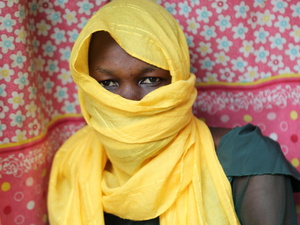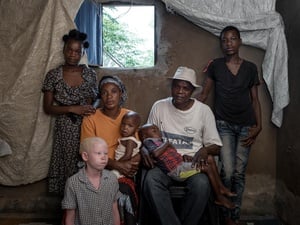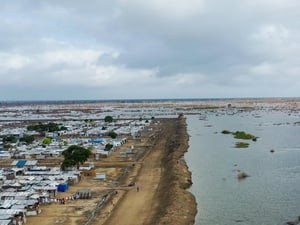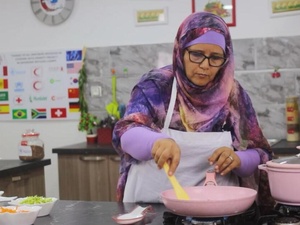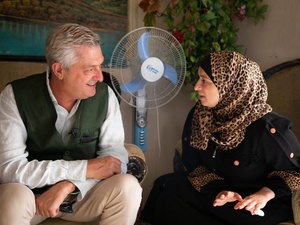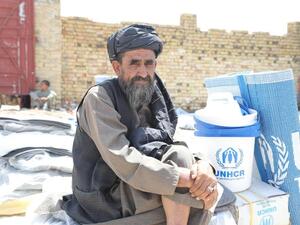Kakuma's refugees deserve food as much as people in Iraq, says Lubbers
Kakuma's refugees deserve food as much as people in Iraq, says Lubbers

UNHCR chief Ruud Lubbers meeting refugees at Kakuma camp during his three-day mission to Kenya.
NAIROBI, Kenya, April 15 (UNHCR) - UN High Commissioner for Refugees Ruud Lubbers has urged the donor community not to forget Africa's hungry refugees amid the Iraq crisis, saying that it would be "absolutely unacceptable" if funding in Africa were to decline further.
Speaking at a press conference Tuesday at the end of his three-day mission to Kenya, Lubbers said, "The people in Kakuma camp (in Kenya) deserve the same basket of food as people in Iraq.... Together with the World Food Programme, we are appealing to the world community not to ignore these refugees."
UNHCR's programmes for Africa were under-funded by 15 percent in 2002. So far this year, the refugee agency has received $133 million or 32 percent of Africa's total funding needs. However, these contributions are not enough to enable the agency to commit funds in advance for the essential care of some 3.3 million refugees in Africa or to respond to rapidly developing crises like that in West Africa.
With this in mind, the High Commissioner warned that the world should not make the mistake of thinking that Iraq is the only country in need.
Earlier on Tuesday, Lubbers met with Kenya's new President, Mwai Kibaki, who pledged that his government's asylum policy would be more open and favourable.
"We are ready to work with the new government to improve conditions for you," Lubbers told crowds of refugees at Kakuma camp in north-eastern Kenya, which he visited on Monday. Kakuma hosts nearly 70,000 refugees.
While there, he expressed concerns about the continuing food shortages for refugees in the country, and urged the donor community to be more generous with aid. In Kakuma alone, malnutrition in children under five years of age has reached unacceptable levels.
Kenya's Minister for Home Affairs, Moody Awori, who accompanied the UNHCR chief to the camp, said a revamped asylum policy was one of the government's priorities. He hoped new policies would grant refugees greater freedom of movement and more self-reliance and self-management. His ministry was already doing much more than before, said Awori.
Last week, the government completed the issuance of a first batch of new identity cards to more than 21,000 refugees in Kakuma camp. This is the first time in 10 years that the East African country is issuing IDs to refugees. The new government plans to issue the documents in several phases to more than 100,000 refugees aged over 18 in Kenya - almost half of the 230,000 refugees in the country.


